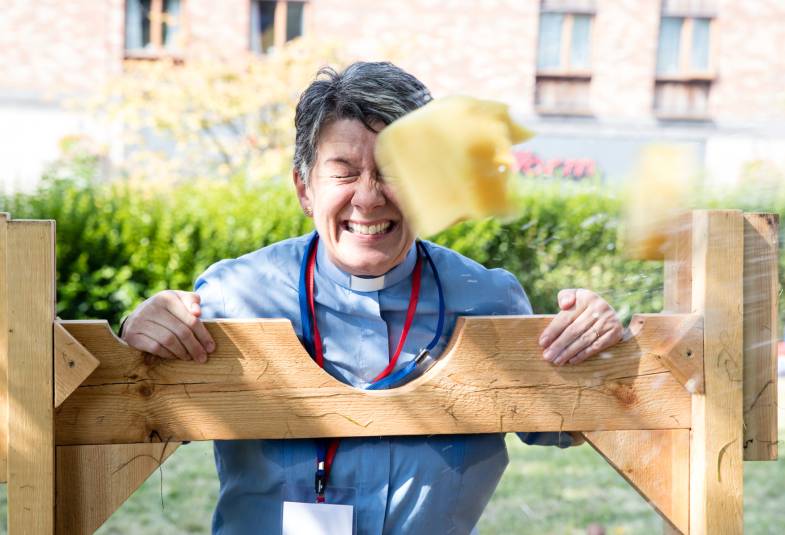Fundraising is one of the most crucial parts of any project.
We can help you be creative and get organised.
Download the toolkit
- Chapter ten: Raising the funds (1.56 MB)

Step one: put together a fundraising team
You need a group of 2-3 people to lead your call for funds. Their role is to:
- Research possible funders
- Keep the group informed
- Write grant applications
- Manage deadlines
If they don’t have fundraising experience, make sure these people have skills in either:
- Administration
- Education
- Marketing
- Charity
Helpful hints
- Parish Resources: Employing professional help (101.53 KB)
- ChurchBuild: Fundraising theology (83.13 KB)
- Parish Resources: Developing a funding strategy (248.29 KB)
Buyers beware! You can hire a professional fundraiser to help you. But this does not guarantee success with your application.
Step two: get all your ducks in a row
Before you rush off asking people for money, make sure you have:
- A clear vision in 2-3 sentences
- Realistic goals
- Clear and measurable objectives
- The project costs
- The necessary permissions
- A strong case for support
- And a fundraising strategy
Helpful hints
- Parish Resources: How prepared are you? (53.85 KB)
- Parish Resources: Campaign timeline template (14.58 KB)
- Parish Resources: Launching your appeal (208.09 KB)
- Parish Resources: Case for support template (49.57 KB)
- Parish Resources: Developing a funding strategy (248.29 KB)
“Fundraising is, first and foremost, a form of ministry. It is a way of announcing our vision and inviting other people into our mission.”
Henri Nouwen, The Spirituality of Fundraising
Step three: try a mix of ideas
Fundraising should be the top priority for your church. But only for a set time. Depending on your project, your appeal should be finished in about two years:
- 6 months to plan and prepare
- 3 months to appeal to your congregation and local community
- 12-15 months to search outside your local area
But before you start, think about how much “person-power” you have and how much you can actually do.
Helpful hints
- Parish Resources: Social enterprise (168.8 KB)
- Parish Resources: Holding a fundraising event (129.42 KB)
- ChurchBuild: How to raise money (448.5 KB)
- Parish Resources: 6 steps to a successful appeal (110.68 KB)
- Parish Resources: Fundraising ideas (147.1 KB)
Case studies
- Case study: St John Penzance (207.51 KB)
- Case study: St John Kingston Lisle (488.37 KB)
Next steps
To make your vision become a reality you need to start thinking about:

